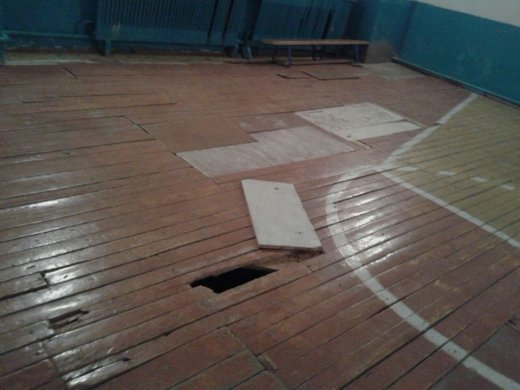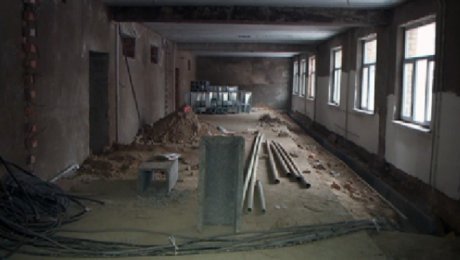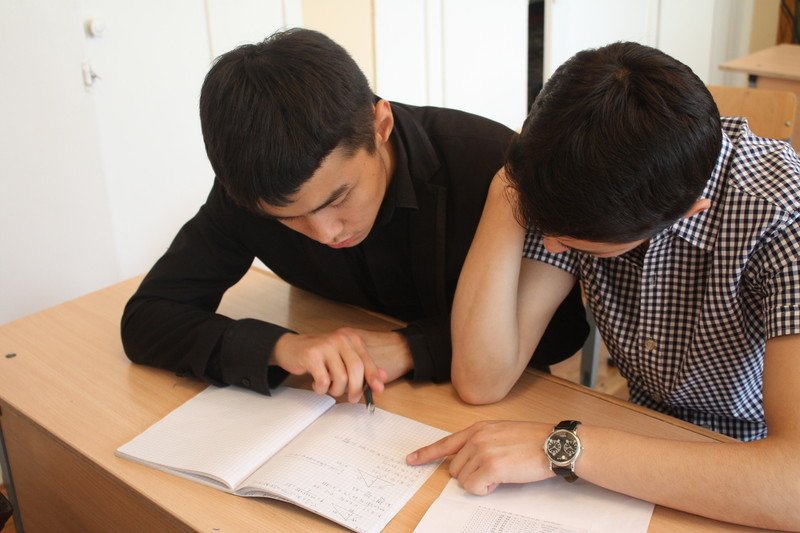Paradigmality senses of modern education
Айгерим Алтынбалта,
М.Х.Дулати атындағы Тараз Мемлекеттік Университеті
«Шетел филолгиясы және аударма ісі»
кафедрасының оқытушысы,
Педагогикалық ғылымдар магистрі
PARADIGMALITY SENSES OF MODERN EDUCATION
Therefore, the purpose of the article is to study innovation processes as the paradigm of education and phenomenon of contemporary culture. Only educational institutions can prepare an adequate man capable to perceive and process reality creatively.
The socio-historical situation at the beginning of the XXI century calls on the education to change its philosophical foundations, a new paradigm based on the understanding of the problems facing the global civilization, a different quality of life, which should be provided by man in global relationships, integrity and unity of the world. It became obvious that modern civilization was born by three revolutions - industrial, socio - political, scientific and educational. One of the leading contemporary sociologists T. Parsons allotted a crucial role to a revolution in education, because most subsystems of society put into effect their potential through education. The revolution reduces the natural dictates of the market, bureaucracy, stratifies society and keeps it from full atomization. He believed that "the education revolution has a significant impact on the social structure of employment, especially in the direction of the general increase of society adaptive capacity, the revolution in education through the development of academic and complex channels of practical application of scientific developments blazed a transformation of the whole structure of modern society" [1, p. 131].
The current world system of education outlines the contours of the society of the XXI century. Therefore, now education is understood as a strategically important area of human life. Changing paradigms of education have always had a huge impact on the acceleration of social progress. On the other hand, the process of changing educational paradigms, which some scientists compared to the "education revolutions" [2; 3; 4; 5], is a societal determinant of education progress.
It should be pointed out that in our paper the term "societal» (societal) is used by tradition developed in a foreign sociological literature. For the first time this term was introduced into scientific circulation in 1903 by the German researcher A. Keller in the coverage characteristics of system processes and patterns in society as a whole organism [6, p. 41]. Societology, as a sociological discipline, is associated with his ideas. Its subject matter is a systematic organization of society and its system-specific patterns of economic, political, social, ideological, and other manifestations of social life. A well-known sociologist T. Parsons and other scientists operate the term "societal" only in cases when it comes to features, concepts and processes that reveal the society as a macro level, when you need to understand society as a whole, to understand its function, structure, stages and trends of evolution, while "social» (social) concerns social phenomena without specifying their level of comprehension (e.g, social action, social function of the family, religion, social organization, etc.) [1]. Hence, when interpreting changes in educational paradigms, which, of course, reflect the fundamental characteristic of the whole society, structural changes, the author of the article uses the term "societal".
Thus, the innovation-creative processes are becoming the societal determinant of modern society, culture, education, education revolution and personality. These processes are the mechanisms of the implementation of civilization nature of modernity. Man in the world - is a creator. The most important social need is in the creation of the new, and it is closely intertwined with purposeful practical activities. The interest to the new acts as a demiurgic and emotional power prompting to the action and to receiving the results of the action. A person can be represented as a cognitive system, characterized by intellectual tendency of reflection and rethinking of the world and the social processes that are inherent in the content of modern civilization. Consequently, to identify the specificity and considering this aspect to build ways of the development of modern civilization, it is necessary to pay special attention to the nature, content and socio-functional orientation of the creative activity of the person (man, the individual, individuals, entity).
Personalism, in our understanding, is a creative substance, constantly developing (evolving), it is based on individual and personal aspiration (creative impulse) of each individual to self-expression, search and active adaptation, the use of existing cultural forms and processes. Personalism has become a form by which all the tumult of wealth and innovation processes of our century has been crystallized. Personalism, therefore, in the modern world (the culture of the XXI century), is the only and indivisible entire with innovative processes that increasingly cover the modern world. Personalism and innovation are paradigmatic phenomena of contemporary culture; the comprehension of them is the key to the answer to many vital but unsolved problems of being an individual.
Therefore, the purpose of the article is to study innovation processes as the paradigm of education and phenomenon of contemporary culture. Only educational institutions can prepare an adequate man capable to perceive and process reality creatively.
Some new value is the result of innovation and a creative process. Innovative activity is the process of creating material and intellectual property in unconventional ways and in a strange form. The secret of innovation and creative activity is contained in the very methodology of value creation, which are innovative, and are outside the existing technologies, social rules and regulations. If a person invents something new that goes beyond a traditional public perception, it will not be conceived immediately. Humanity needs time to comprehend and appreciate such intellectual breakthrough, scientific discoveries and innovative achievements. The result of a creative personality is clear, traditional, estimated easily and quickly. In our opinion, in innovative activity man creates, improves not only things, but also himself/herself. Innovation allows him/her to establish himself/herself before the world. Innovation and creative activity, as a true human phenomenon caused by the activity of living, smart brain and manifestation of the spiritual nature of man, establishes the basis and condition for all further development. It allows man to arrange a free, flexible, productive, somehow harmonious interaction of different plans, different levels of his/her consciousness. In external means of expression man is able to objectify his/her experiences, and images of his/her imagination, making them the property of others.
The position occupied by man in the world, is, inherently, an eccentric one. This means that man does not have a fixed place, that‘s why he/she is doomed to an endless search for a permanent change in his/her social reality and his/her internal state. In our civilization paradigm of education creativity and originality are the transition to a new standard of living system - the development of opportunities, expansion and growth of potential resources of man. Civilization parameters of education require the readiness of public consciousness and, above all, its ideologists to reconsider their mental habits and the very image of man.
Civilization universe of modern changing society, focusing on the culture of dignity, appeals to a different mentality, in which individuality, creativity, personal choice, acceptance of responsibility are valued. The refraction of objectives and educational outcomes in the context of civilization concentrates in dual unity - which contribution the education as a social institution, being a form of educational space, must make to the education of the individual.
Thus, the culture and identity of the XXI century has survived "future shock", but faced with the shock of a different order and content - the "shock of innovativeness" - the inevitability and irreversibility of changes in the socio-cultural system.
ЛИТЕРАТУРА
1. Парсонс Т. Система современных обществ. / Т. Парсонс. – М.: Аспект Прессе, 1998 – 270 с.
2. Драйден Гордон. Революція в навчанні / Перекл. З англ.. М. Товкало. / Драйден Гордон, Вос Джанетт. – Львів: Літопис, 2011. – 544 с.
3. Ильинский И. Образовательная революция. / И. Ильинский. – М.: Изд-во Московской гуманитарно-социальной академии, 2002. – 529 с.
4. Романенко М. І. Гуманізація освіти: концептуальні проблеми та практичний досвід. Наукова монографія [Електронний ресурс] / Романенко M. I. – Дніпропетровськ, Видавництво «Промінь», 2001. // Режим доступу: http://doippo.iatp.org.ua/text/Rom–Monogr–Humanizm.htm
5. Турченко В. Н. Пять образовательных революций / Турченко В. Н. // Образование и наука на пороге третьего тысячелетия [Тезисы международного конгресса]. – Новосибирск. – 1995. – 287 с.
6. Handbook of Social Theory / [edited by George Ritzer, Barry Smart]. – Sage Publications Ltd, 2003. – 552 p.

















